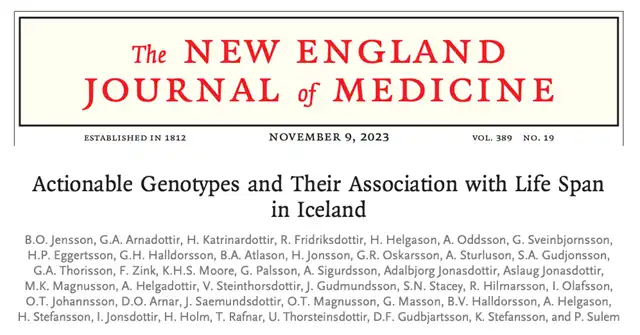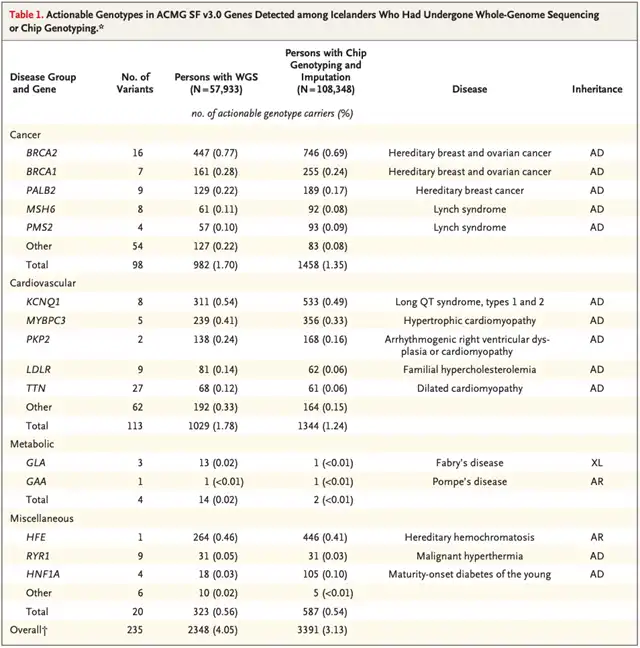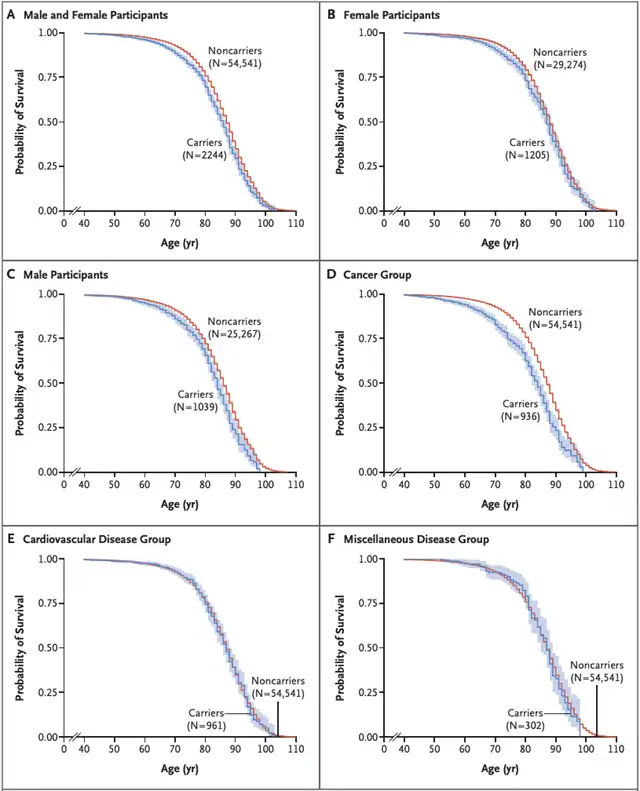1 in 25 People Carry Genotypes Associated with Shortened Lifespan
- Normal Liver Cells Found to Promote Cancer Metastasis to the Liver
- Nearly 80% Complete Remission: Breakthrough in ADC Anti-Tumor Treatment
- Vaccination Against Common Diseases May Prevent Dementia!
- New Alzheimer’s Disease (AD) Diagnosis and Staging Criteria
- Breakthrough in Alzheimer’s Disease: New Nasal Spray Halts Cognitive Decline by Targeting Toxic Protein
- Can the Tap Water at the Paris Olympics be Drunk Directly?
NEJM: 1 in 25 People Carry Genotypes Associated with Shortened Lifespan
- Should China be held legally responsible for the US’s $18 trillion COVID losses?
- CT Radiation Exposure Linked to Blood Cancer in Children and Adolescents
- FDA has mandated a top-level black box warning for all marketed CAR-T therapies
- Can people with high blood pressure eat peanuts?
- What is the difference between dopamine and dobutamine?
- How long can the patient live after heart stent surgery?
NEJM: 1 in 25 People Carry Genotypes Associated with Shortened Lifespan
With advancements in technology and reduced costs, the number of exome and genome sequencing is rapidly increasing.
Research initiatives involving these sequences are recruiting large patient cohorts.
The UK Biobank study involves exome or genome sequencing data from 500,000 participants, while the All of Us and Our Future Health projects aim to sequence 1 million and 5 million participants, respectively.
These datasets will contain pathogenic genotypes carried by participants.
In May 2021, the American College of Medical Genetics and Genomics (ACMG) introduced 73 actionable genotypes related to diseases like cardiovascular issues, cancer, and metabolic disorders, enabling preventive or therapeutic measures.
In June 2023, an updated version was released. However, there is currently a lack of assessment regarding the association of these actionable genotypes among these genes with lifespan.
On November 9, 2023, researchers from deCODE, a subsidiary of Amgen, published a study titled “Actionable Genotypes and Their Association with Lifespan in Iceland” in the New England Journal of Medicine (NEJM).
The study revealed that 4.05% of Icelanders carry one or more of the actionable genotypes outlined in the ACMG guidelines, leading to diseases such as cardiovascular issues, cancer, and metabolic disorders. Those carrying these genotypes exhibit a shorter lifespan, with the most significant impact observed among carriers of cancer-susceptibility genotypes, shortening their median survival by 4 years.

Providing precision medicine to populations requires extensive genomic, transcriptomic, and proteomic data. Iceland, with a substantial dataset accumulated by deCODE due to its population, is particularly suited for this work.
The study focused on genotypes that increase disease risk, for which preventive or treatment measures have been established and termed actionable genotypes. Using a population-based dataset involving around 58,000 whole-genome sequenced Icelanders, the research evaluated the proportion of individuals carrying these actionable genotypes.
Utilizing the ACMG guidelines’ list of 73 actionable genes, the research found that 4.05% of Icelanders carry one or more of these actionable genotypes, leading to diseases such as cardiovascular issues, cancer, and metabolic disorders.

The study also assessed the relationship between actionable genotypes and the lifespan of carriers. The most significant impact was observed among carriers of cancer-susceptibility genotypes, shortening their median survival by 4 years. For instance, individuals carrying the pathogenic mutation of the BRCA2 gene, prone to breast, ovarian, and pancreatic cancer, had a lifespan shortened by 7 years compared to non-carriers. Similarly, carriers of the LDLR mutation, associated with high cholesterol and cardiovascular disease, experienced a lifespan reduction of 6 years compared to non-carriers.

Patrick Sulem, the lead author of the paper and a scientist at deCODE, stated that the actionable genotypes identified in this study are predicted to lead to severe diseases that could significantly impact lifespan.
The research indicates that 1 in 25 people (4%) carries an actionable genotype, leading to an average reduction in their lifespan. Carriers of specific actionable genotypes are more likely to die from diseases caused by these genotypes. Individuals carrying the pathogenic mutation of the BRCA2 gene have a sevenfold risk of dying from breast, ovarian, or pancreatic cancer compared to non-carriers. Additionally, they have a 3.5 times higher likelihood of prostate cancer and a sevenfold higher risk of dying from it compared to non-carriers.
Kari Stefansson, CEO of deCODE, highlighted that identifying and disclosing participants’ actionable genotypes can guide clinical decisions, potentially improving patient outcomes. Therefore, these findings hold significant potential for alleviating the burden of disease on individuals and society as a whole.
Paper link:
NEJM – Actionable Genotypes and Their Association with Lifespan in Iceland
—
(source:internet, reference only)
Disclaimer of medicaltrend.org
Important Note: The information provided is for informational purposes only and should not be considered as medical advice.



